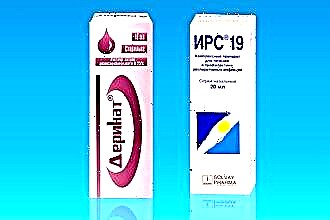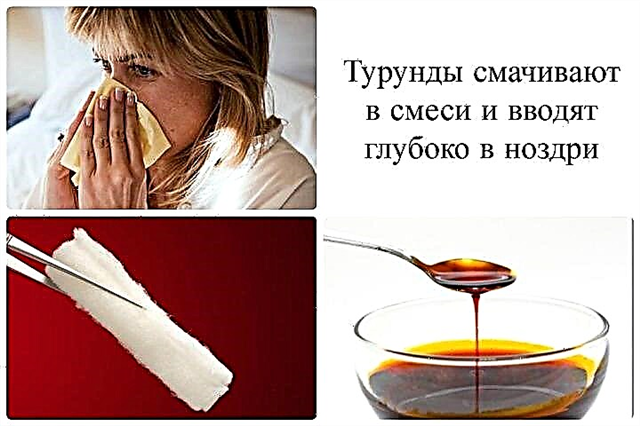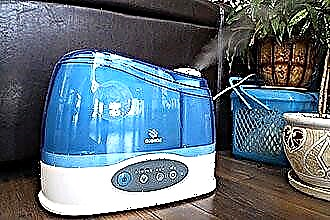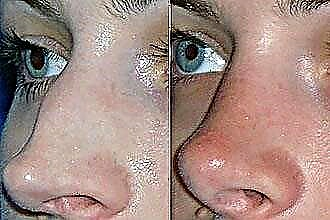The number of visits to a doctor with nasal congestion increases significantly in the spring-autumn period, when the weather changes dramatically, we often freeze and get caught in the rain. There are many reasons for the deterioration of the condition, so therapy also has its own characteristics. Treatment of nasal congestion should be carried out taking into account the severity of the person's condition and the presence of concomitant diseases.
Discomfort in the nasopharynx interferes with sleep, work and normal conversation. With the spread of edema to the mucous membrane of the auditory tube, hearing also deteriorates.

To remove unpleasant symptoms and restore nasal breathing in an adult, it is necessary to combine drug therapy with warming procedures, massage and inhalation.
Among the provoking factors should be highlighted:
- frequent hypothermia;
- the influence of allergic factors;
- trauma to the nasal mucosa;
- hormonal fluctuations;
- dysfunction of the nervous system;
- unfavorable living conditions;
- curvature of the septum;
- polyps;
- chronic infections in the nasopharynx;
- foreign bodies in the nasal passages.
Drug therapy
In this section, we'll talk about how to get rid of nasal congestion. To eliminate congestion, you can use various sprays with vasoconstrictor properties, but they may not always be able to cure the disease. To date, a huge number of ointments, aerosols, tablets and syrups have been developed to restore nasal breathing.
Let's consider the most commonly used drug groups.
Vasoconstrictor drugs
What to do if the nose is very stuffy? The most common medicine for congestion is a nasal spray with a vasoconstrictor effect. The drug is also available in the form of drops for children.
How does it get rid of a stuffy nose? The action of the medication is aimed at reducing the diameter of the blood vessels at the site of its administration. The consequence of this is a decrease in the severity of swelling of the mucous membrane and secretion.
It becomes easier for a person to breathe, however, not for long. Depending on the composition of the spray, the therapeutic effect lasts for 4-10 hours, after which the nose clogs up again.
The maximum therapeutic course with the use of vasoconstrictor drugs is 7 days, after which the risk of addiction and the development of drug-induced rhinitis increases.
Frequent and prolonged use of such drugs leads to dysregulation of vascular tone. A large dose is required to achieve the initial effect. As a result, the vessels may lose sensitivity to the medication and begin to dilate in response to its administration.
| Drug name | Duration of effect | Contraindications |
|---|---|---|
| Nazol | Up to 6 hours | Severe hypertension, hepatitis, arrhythmia, renal, cardiac insufficiency, thyrotoxicosis, prostate adenoma |
| Sanorin, Naftizin | Up to 4 hours | Hypertension, tachycardia, hyperfunction of the thyroid gland |
| Xymelin, Xylo Mefa Otrivin | The effect lasts up to 5 hours, vasospasm - up to 10 hours | Glaucoma |
| Nazivin, Vicks Active | Until 10 o'clock | Atrophic type of rhinitis, glaucoma |
Saline solutions
 You can cure nasal congestion with saline solutions, which cleanse the mucous membrane of dust, microbes and allergens. If the nose is stuffy, you should cleanse the nose with a saline solution before instilling the medicinal drops. Its action is:
You can cure nasal congestion with saline solutions, which cleanse the mucous membrane of dust, microbes and allergens. If the nose is stuffy, you should cleanse the nose with a saline solution before instilling the medicinal drops. Its action is:
- a decrease in the viscosity of mucus;
- removing irritating substances from the cavity;
- activation of regenerative processes;
- an increase in vascular tone.
For nasal congestion, it is recommended to:
- Aqua Maris;
- Physiomer;
- Humer;
- Dolphin;
- Marimer;
- Aqualor;
- Morenazal.
These drugs are absolutely safe - they are allowed for pregnant women and babies from the first days of life. A variety of saline solutions are hypertensive forms, for example, Quicks, Aqua Maris Strong. They reduce swelling and improve drainage from the sinuses. It is forbidden to use them for more than three days, as well as to pregnant women and newborns.
Hormonal drugs
What to do if your nose is blocked? Considering the cause of the disease, the doctor may recommend glucocorticosteroids. They have powerful anti-inflammatory, antihistamine and decongestant properties.
What to do if the nose is very stuffy? Hormonal drugs are first aid medicines because they quickly relieve symptoms and make breathing easier.
Note that these funds reduce the strength of local immunity and thin the mucous membrane. How to deal with nasal congestion?
| Name | Doses | Contraindications |
|---|---|---|
| Avamis | 1-2 sprays once a day | Hypersensitivity, children under 2 years of age |
| Fliksonase | 1-2 doses once a day | Hypersensitivity, children under 4 years of age |
| Nazonex | 1-2 sprays once a day | Tuberculosis, systemic infections |
| Nasobek, Beclomethasone | 2 sprays twice a day | Tuberculosis, severe asthma attack, candidiasis, first trimester of pregnancy, childhood |
Mucolytic agents
How to get rid of nasal congestion? If the nose is clogged with thick mucus, mucolytic agents are prescribed to reduce its viscosity. They improve drainage function and make breathing easier. What to do if the nose is blocked?
A prominent representative of this group is Rinofluimucil. It is often used in children and is recommended for adults. The drug is used in 1-2 doses three times a day.
It is contraindicated for up to three years, with hypersensitivity, glaucoma, hyperfunction of the thyroid gland, taking antidepressants.
Antiseptic medicines
Difficulty breathing and a stuffy nose are very common with infectious rhinitis. With a stuffy nose, medications with an antiseptic composition should be used, which allows you to kill germs and eliminate the symptoms of the disease.
 Nasal congestion can be treated with the following medications:
Nasal congestion can be treated with the following medications:
- Protargol, which contains proteinate silver. It is contraindicated for hypersensitivity. Side effects include sneezing, itching, rhinorrhea. When these signs appear, the nasal passages should be rinsed with saline;
- Dioxidine - Used as a powerful antiseptic.
Antiviral medications
When a stuffy nose with viral pathology, drugs with antiviral activity should be used. They are composed of interferons, which are part of the immune system.
One of these medicines is Grippferon. It is used for therapeutic, prophylactic purposes in adults as well as infants. Contraindications include allergic rhinitis.
Antibacterial agents
You can get rid of purulent discharge with the help of antibacterial medicines. Treatment for bacterial nasal congestion should include medications that include an antibiotic.
These medicines include the following:
| Name | Contraindications | Side effects |
|---|---|---|
| Isofra (antibiotic) | Hypersensitivity | Hives, itching |
| Polydexa (has an antibacterial, hormonal, vasoconstrictor component) | Up to 12 years old, herpes in the nasal area, chickenpox, pregnancy | Urticaria, pruritus, insomnia, headache, tachycardia, pallor, hypertension |
Immunostimulants
Treatment for nasal congestion should include immunostimulants to boost local immune defenses. These drugs include:
 Derinat. Used two drops three times a day. The drug is contraindicated in hypersensitivity. From the side effects, we single out the itchy sensations in the nose;
Derinat. Used two drops three times a day. The drug is contraindicated in hypersensitivity. From the side effects, we single out the itchy sensations in the nose;- IRS-19, which contains bacterial particles.Contraindications include pregnancy, age up to three months, and autoimmune diseases. Side effects include urticaria, cough, bronchospasm, intestinal dysfunction and colic. It is used 1 dose twice a day.
Antihistamines
If the nose is blocked, antihistamines should be used. Treatment of nasal congestion of allergic origin is carried out with the following drugs:
| Name | Contraindications | Side effects | Doses |
|---|---|---|---|
| Cromohexal | Under four years of age, pregnancy | Severe rhinorrhea, burning, drying out of the mucous membrane of the nasal cavities | 2 drops three times a day |
| Tizine Allergy | Under six years of age, renal failure, pregnancy | Dry mucous membranes, skin rash, headache, lethargy, cough | 2 doses twice a day |
| Allergodil | Age up to six years | Sneezing, burning, nasal bleeding | 1 spraying twice a day |
It is important to remember that allergy symptoms will persist as long as the allergic factor is active.
Useful procedures
How is nasal congestion treated? To eliminate nasal congestion and make nasal breathing more free, it is necessary to supplement drug therapy with inhalation, massage and warming.
Note that the listed procedures are not performed with hyperthermia above 37.5 degrees.
Inhalation
Nebulizer therapy significantly speeds up the patient's recovery. The device provides delivery of medicinal particles of the drug directly to the inflammatory focus.
If your nose is not breathing, inhalation will help:
- moisturize the mucous membrane;
- soften dry crusts;
- accelerate regeneration;
- reduce irritation;
- reduce the viscosity of the secretion;
- quickly make breathing easier.
Inhalation can be administered:
- Tonsilogon, which should be diluted 1: 1. The drug reduces swelling and inflammation in the tissues;
- Interferon - refers to antiviral drugs based on interferon;
- Miramistin is a powerful antiseptic that effectively fights the purulent process. For the procedure, 0.1% is used;
- non-carbonated alkaline water (Essentuki, Narzan).
For a nebulizer, it is allowed to use medicines diluted only with saline.
Thermal treatments
 How to cure congestion with warming treatments? To reduce tissue swelling and restore nasal breathing, you can use:
How to cure congestion with warming treatments? To reduce tissue swelling and restore nasal breathing, you can use:
- table salt in a bag;
- boiled eggs, potatoes;
- blue lamp.
The action consists in:
- dilation of blood vessels;
- reduction of stagnation;
- activation of metabolic processes;
- reducing swelling.
Massage
If the nose is not breathing, it is recommended to massage for 10 minutes three times a day. It is effective when the first symptoms appear. The massage is carried out with warm hands, smooth movements.
What points should be massaged?
- between the eyebrows (at the intersection with the bridge of the nose);
- on the sides of the nostrils;
- between the upper lip and nose (in the middle);
- under the edges of the wings of the nose, a centimeter from the upper lip.
Thanks to a comprehensive treatment approach, you can quickly get rid of nasal congestion, improve breathing and sleep. If home therapy has not led to the desired result, you should consult a doctor on the third day, without waiting for the development of complications.

 Derinat. Used two drops three times a day. The drug is contraindicated in hypersensitivity. From the side effects, we single out the itchy sensations in the nose;
Derinat. Used two drops three times a day. The drug is contraindicated in hypersensitivity. From the side effects, we single out the itchy sensations in the nose;

